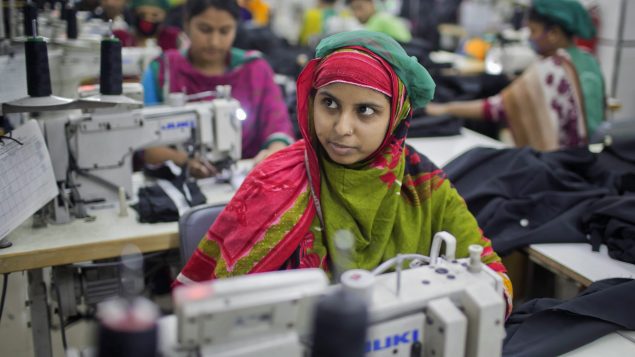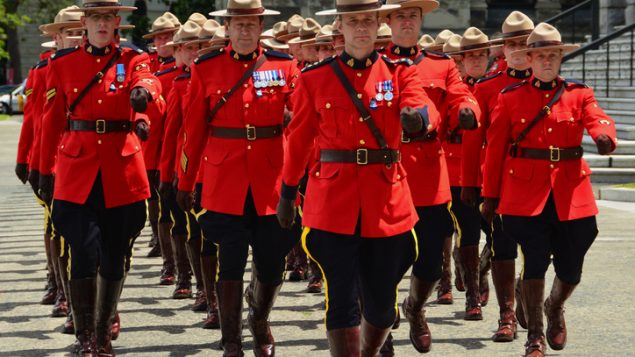The government of Canada has established new rules for the procurement of employee uniforms to ensure suppliers are paying fair wages, not using child labour and are adhering to other labour standards. Most uniforms for government employees are made in Canada but the government buys over $15 million worth from outside the country every year.
Now, companies that fill contracts for those uniforms will have to sign a certification letter saying they will respect principles set out in international conventions to ensure safe and humane working conditions.

Jocelyne Dubois says that the news rules for procurement of uniforms are a good first step, but Canada should do more.
‘There’s a weakness in the policy’
While Canadian labour organizations applaud the new regulations they are concerned they may not go far enough. “The fear is that it’s window-dressing and a box-ticking exercise,” says Jocelyne Dubois, a director at the Canadian Labour Congress.
“There’s a weakness in the policy in that it really only applies to the Canadian company and its first level of suppliers…We would really like to see something that stretches all the way down the supply chain so that workers in the sub-contracting factories are protected.”
Dubois would also like to see workers have the freedom to form independent and democratic unions so that they could advocate and bargain for improvements in their conditions.

Safety standards have improved in some Bangladeshi apparel factories after the collapse of the Rana Plaza factory killed over a thousand workers and clothing companies applied pressure. Activists would now like to see better labour standards applied too. (A.M. Ahad/AP Photo/file)
‘Canadian companies have a responsibility’
Still, the new procurement rules are seen as a step in the right direction. They will oblige adherence to standards on child labour, forced labour, abuse and harassment, discrimination, freedom of association and collective bargaining, health and safety, fair wages and hours of work.
Says Dubois: “Today with the systems of supply chains crossing borders, it means that Canadian companies have a responsibility for the workers in overseas factories. They have a responsibility throughout their operations.”







For reasons beyond our control, and for an undetermined period of time, our comment section is now closed. However, our social networks remain open to your contributions.